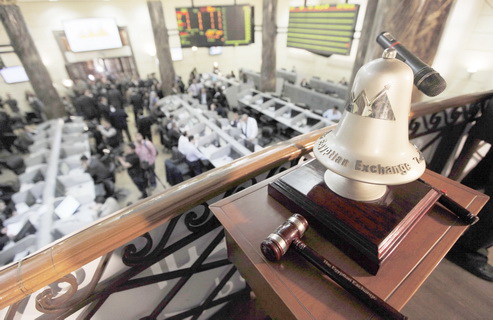Following the announcement of the Suez Canal project earlier this month, comparisons between the project and the ones that preceded it have flowed in from experts, analysts and Egyptian citizens.

While some have called the project is a new economic leap forward, others have argued that it is no different than the project introduced during the governments of ousted presidents Mohamed Morsi and Hosni Mubarak. With this in mind, The Daily News Egypt has reviewed the changes the project’s vision has been subject to since its introduction during the Mubarak era.
Public introductions to the project were made in the 1990s with prime minister Kamal El-Ganzouri in office. The project faced some technical problems and was hindered for several years. During the mid-2000s, the project was reintroduced under prime minister Ahmed Nazif and then again by former president Mohamed Morsi.
“There is no difference between the projects,” said economist and founding member of the Public Front of the Suez Canal Rasha Qenawi. “There are currently two projects but unfortunately there’s a huge misunderstanding in the Egyptian media.”
Qenawi highlighted that the new Suez Canal project is comprised of two main projects: the first is the drilling and expansions in the canal while the second is the broader development project.
According to a source who was involved in the project during the 1990s, the expansion and drilling project was new, while the development project kept changing depending on the vision of who was in charge at the time.
The source, who preferred to remain anonymous, said that the project was seriously reconsidered by the government after the 25 January uprising.
“The development project was first introduced during the [Mohamed Anwar] Al-Sadat term with minister of housing Hasaballah El-Kafrawy,” Qenawi said, adding that the project “was placed in drawers [not implemented].”
She stated that during the Mubarak period, the “political motivation to implement the project was absent.”
Qenawi added that during Morsi’s rule, the same project was adopted.
“The Muslim Brotherhood made some mistakes when they started with the law adjustments when they should have drawn a road map for the project,” Qenawi said. “An expert should have been selected to study the project.”
Qenawi added that other mistakes included that president’s authority to form a committee that would be unsupervised financially. She stated that this led the Public Front of the Suez Canal to make “noise”, supported by Egyptians.
The economist added that following Mors’s rule, Hazem El-Beblawi’s government adopted the project and announced an international bid for a consultancy company.
“The company would put the master plan for the project,” Qenawi said. “The name of bid’s winner will be announced Monday.”
On the $13bn revenue that is expected after the one-year canal expansion project, Qenawi said that the figure is “a bit over the top”.
She added that, even after toll fee increases, the expected revenues would be $8bn or $9bn.
The government has also announced that the canal’s development project is expected to raise revenues of the broader canal project to $100bn.



